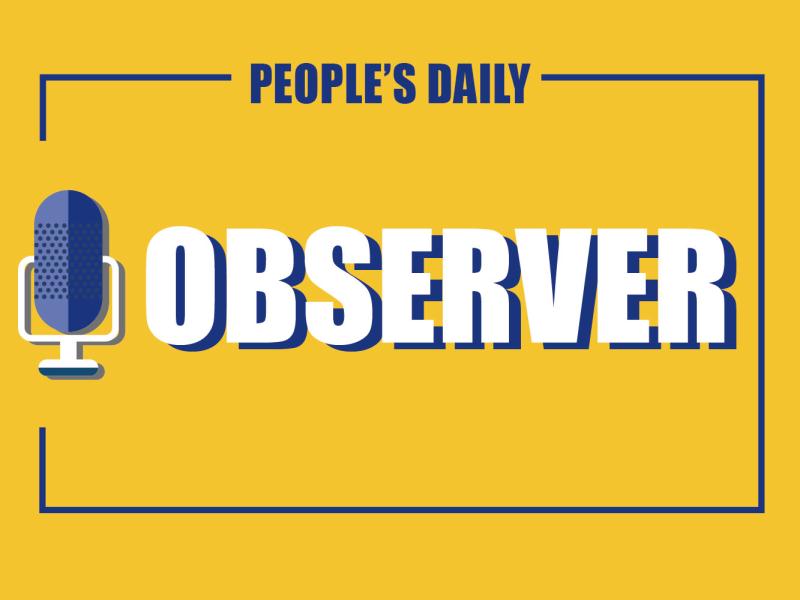
The COVID-19 pandemic threatens the China-US bilateral ties. It even further undermines future global stability as some politicians in the United States continue to take a hard line against China out of pure political interests. Recently a memo sent by the National Republican Senatorial Committee (NRSC) to GOP campaigns has urged Republican candidates to address the COVID-19 pandemic by aggressively attacking China.
Three main lines of assault are emphasized in the 57-page talking points, leaked by Politico last Friday: that China caused the virus "by covering it up," that Democrats are "soft on China," and that Republicans will "push for sanctions on China for its role in spreading this pandemic".
As the battle against the virus requires large-scale global cooperation, China-US coordination is irreplaceable. The US buck-passing actions by fabricating a conspiracy theory that the COVID-19 was man-made at Wuhan Institute of Virology worsened the bilateral cooperation, impeded potential assistance, and hence poisoned the bilateral relations.
"By planting fake news about Chinese evildoing through anonymous US officials and dodgy document dumps, the White House appears to hope that an escalated conflict abroad will paper over its failures at home," said a report of the Grey Zone, an independent news website.
Though the US and China differ a lot, similar models in disease prevention and control may not be compatible in both countries, China's experiences in mobilizing national resources to battle the virus are still worthy to draw lessons from in many aspects. Compared with foreign assistance and international cooperation projects with other countries, China-US cooperation lags.
The fundamental reason lies in the fact that American hardliners tried to strengthen the competition with China, scapegoating China for all problems of the US, said Fu Ying, director of the Center for International Strategy and Security from Tsinghua University, in an interview with Special Reporting. Six months away from a presidential election, the China card is so useful to play so that the Trump's administration's inability to deal with the virus can be ignored. But it should be noted that the lack of bilateral cooperation from the two superpowers does no good to containing the virus globally, while largely weakening the confidence of the public.
The pandemic is a major event that's capable of changing global discourse. In previous crises like the September 11 attacks in 2001 and financial crisis in 2008, countries around the world stand in solidarity with the US to conquer the difficult times. But this time, the US has failed to construct beneficial cooperation, nor does it lead the world in the anti-virus fight as a significant global power. What it does is merely shifting responsibilities, hindering collaboration, and halting funding to the WHO.
"I cannot think of a more dangerous time in the US-China relationship in the last 40 years," said China analyst Bill Bishop. As some hawkish American politicians wanted, they hoped the virus could push the two countries to decouple so that the US can continue to seek hegemony. But reality has shown us that zero-sum game is no longer a solution amid the pandemic as globalization creates high interdependence among all countries. Amid the pandemic, no country can survive and thrive from the competition as coexistence is the only way out.
Cooperation to save more lives is the priority rather than blaming China to get reelected. In this public health crisis, information and expertise sharing on developing vaccines and potential wonder drugs, tracing infected patients, and educating the public on rudiments of disease prevention are essential. Weathering the pandemic and restarting the economy is also something which requires global cooperation in the future.
Crisis can stand as a test of the state governance of all countries and the choice lies in whether they compete or cooperate. US politicians better take the pandemic as a wake-up call.


